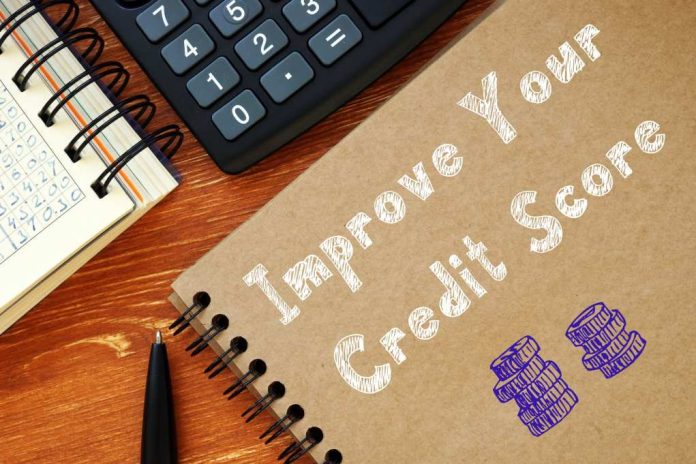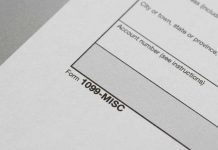
Sadly, not everyone has the knowledge they need to handle their credit properly. That is why they can find themselves in tough situations. In fact, 25% of low-income individuals don’t know how they can improve their credit score. On top of that information, 20% of Americans have been delinquent for more than 30 days and 11.1% of Americans have a score less than 550. Your score is an important part of life so you need to handle it responsibly! If you find that your score needs to improve then there are ways that you can repair your credit.
Better Understand Your Credit Score
Before you dive into how to repair your credit, you will need to have a better understanding of your score first. Your score is typically a number between 300 to 850. This score is calculated by credit bureaus (also known as credit reporting agencies) that use information found on your credit report. There are three major credit bureaus which are Equifax, Experian, and Transunion. Your report has detailed information about your credit history like the number of accounts, total credit limit, late payments, and more.
When credit bureaus calculate your information, they base it off of 2 scoring models. They either use VantageScore or the FICO scoring model (but the FICO scoring model is used by 90% of top lenders). Your score is an important part of your life because lenders use it to get a better understanding of you as a borrower. This means it plays a part in buying a home, getting a car, qualifying for different types of loans, and more. If your score is low then lenders can view you as a subprime borrower which means there is more risk that they take on if they lend to you.
What Factors are Important to Your Credit Score?
There are five main factors that will be important to credit bureaus when calculating your score:
- Payment History
- Amount Owed
- Credit Age
- Mix of Credit
- Hard Inquiries
Payment History
This is the most important factor that impacts your score since it accounts for 35% of it! Your payment history includes any late payments, collection accounts, etc. This factor can easily show lenders how you repay debts.
Amount Owed
The amount you owe is also referred to as your credit utilization ratio. This ratio is a number that looks at the amount you owe compared to your total credit limit. For example, let’s say between two credit cards your total credit limit is $1,000. If you are using a total of $500 between these two cards then your credit utilization ratio would be 50%. This is the second most important factor since it accounts for 30% of your score.
Credit Age
The age of your credit is the third most important factor and accounts for 15% of your score. The age of your credit takes into consideration your oldest accounts, your newest accounts, the average age of your accounts, etc.
Mix of Credit
This is tied for the least impactful factor of your score at 10%. The mix of credit you have is still an important factor to keep in mind but it is not necessary. There are different types of credit like revolving credit or installment loans. Consumers that have more than one type may be a good indication to lenders of how they manage a variety of different accounts!
Hard Inquiries
Tied with your mix of credit, hard inquiries also impact your score at 10%. There are two types of inquiries:
- Soft Inquiries
- Hard Inquiries
Soft inquiries do not have any impact on your score. They are generally used as a way to pre-qualify an individual! However, hard inquiries are a different story. Hard inquiries require written consent from the consumer that allows lenders to do this type of credit pull. It allows a lender an in-depth look at your credit file and can have a negative impact on your score.
Where Does Your Credit Score Fall?
People can get a free credit score check through third party platforms like Credit Karma or Experian. They can also check out their score for free through their credit card provider like Capital One. Regardless, it is important to check your score! When you review your score you may see that it is labeled as “fair” or “poor”. The category of your score is based on the scoring model used by the credit bureau. With the FICO scoring model::
- Excellent: 800+
- Very Good: 740-799
- Good: 670-739
- Fair: 580-669
- Poor: <580
However, the VantageScore model is different:
- Excellent: 781+
- Good: 661-780
- Fair: 601-660
- Poor: 500-600
- Very Poor: <500
How to Repair Your Credit Score
If you find that your credit score could use some improvement, there are ways that you can repair it! The credit repair process can be done in many different ways. Popular ways to repair your credit include:
- Credit Repair on Your Own
- Get Help from a Credit Repair Company
Credit Repair on Your Own
A popular path that people choose is to repair their credit on their own. There are plenty of ways that people handle credit repair by themselves. They can:
- Improve Credit Management
- Get Advice from a Credit Counseling Agency
- Dispute Errors on Credit Report
Improve Credit Management
The first thing that people will want to do is get into better habits when managing their credit. Making sure payments are made on time, keeping the credit utilization rate below 30%, not opening too many new accounts at once, keeping hard inquiries to a minimum, keeping unused credit accounts open, are all some popular ways that people can improve their credit management.
It can be hard getting into good habits, especially if you aren’t used to it. Taking it step by step is key in making sure you get onto the right path. Even if you make a mistake along the way, just making sure you keep handling your credit properly can make a world of difference!
Get Advice from a Credit Counseling Agency
Credit counseling agencies are generally non profit organizations that aim to help consumers by providing education for credit management. Generally the counselors at these organizations are trained and certified in consumer credit, money management, debt management, and even budgeting. Counselors can go over your financial situation and help you get together a plan of action based on your needs. If you want to repair your credit, you can bring in relevant information about your financial/credit situation and go from there! These companies are usually free; no credit card, check, or cash payments are required!
Dispute Errors on Your Credit Report
Another popular way that people try to improve their credit score is by disputing errors they find on their credit report. Consumers can get 1 free report every year by visiting AnnualCreditReport.com or by requesting one through the credit bureaus. Once you receive your report you can look for errors on it. Common inaccurate items found on a report includes:
- Identity Errors
- Incorrect Account Status Reporting
- Data Management Errors
- Balance Errors
Identity Errors
Identity errors include items like:
- Any errors with your identifying information like name, phone number, address, etc.
- Inaccurate accounts that belong to another person that has the same or similar name.
- Accounts that come from identity theft.
Incorrect Account Status Reporting
This is another common negative item found on credit reports. This includes items like:
- Accounts that are closed being reported as opened.
- Being reported as an owner of an account but you are only an authorized user.
- False reporting of late payments
- Incorrect payment dates
- Same debt accounts listed more than once
Data Management Errors
Common types of data management errors found on a report includes:
- Corrected negative items getting put back onto your report
- Accounts that are listed more than once that are associated with different creditors.
Balance Errors
Negative items found on a report can also include balance errors like:
- Inaccurate current balance on accounts
- Incorrect credit limit on accounts
- Incorrect debt owed on accounts
A consumer can submit a dispute with 1 or all of the major credit bureaus. The bureaus then have up to 45 days to investigate and respond (however it is generally 30 days). If the item disputed is found to be inaccurate then it will be removed from your credit report. Once it falls off the negative impact will be removed as well.
Get Help From a Credit Repair Company
Instead of handling the credit repair process themselves through disputing errors. Credit repair companies would analyze your credit report and dispute any inaccurate or unverifiable items with the credit bureaus on your behalf. A credit repair company can be costly and generally range from $19 to $149 per month depending one the credit repair services you need. However they do not provide a service that a person cannot do on their own!
If you do want the help from a credit repair company then you will want to make sure you go to a legitimate business. A helpful tip to find legit businesses is to consider the Credit Repair Organizations Act (CROA). The CROA protects consumers by enacting laws like:
- Prohibiting misleading or false representations
- Requiring specific disclosures during the offering or sale of “credit repair” services
- Making it illegal for credit repair companies to request payment in advance
- Requiring contracts be in writing
- Certain Cancellation rights to consumers
You want to make sure the company you choose follows the law!
Commonly Asked Questions
Credit repair can be stressful, especially if you want to improve your credit quickly. There are questions that plenty of other people have had on their credit repair journey that you may have as well!
How Long Does It Take for Credit Repair to Work?
There are plenty of ways that a person can repair their credit. Regardless of how they choose to tackle the problem, credit repair is measured in months (or even years!). Generally, you will not be able to see improvement within days or even weeks.
Are There More Than 3 Credit Bureaus?
There are other smaller consumer reporting companies that may be used depending on the circumstance. These companies can offer alternative reports. Some may specialize in specific data while others act as just another source of information. According to the Consumer Financial Protection Bureau (CFPB) there are roughly 400 consumer-reporting companies.
Will Credit Repair Remove the Negative History from My Credit Report?
Possibly! If there were negative items on your credit report that were inaccurate then yes you could resolve that with credit repair through the dispute process. However, negative information stays on your credit report for up to 10 years.
How Much Does Credit Repair Cost?
The exact cost of credit repair will vary. If you choose to handle credit repair on your own it can be completely free. If you choose a credit repair company then you can expect it to generally cost between $19 to $149 a month depending on the services needed and the company you choose.
Why Do I Have More Than 1 Score?
If you noticed that you have different credit scores depending on the credit bureau then you are not alone! Each credit bureau likely has a different version of your credit history. This happens because lenders may not report to all three bureaus or they don’t update your report at the same time.
Can Deleted Items Go Back on Your Credit Report?
Sadly, yes. Your credit report may feature items again even after the removal or deletion. That is why consumers should contact not only the credit bureaus but their creditors as well. This can help people avoid it from happening (but it’s not guaranteed).
Overall
It is important that you have a clear understanding of your credit score. Your score is a number that typically ranges from 300 to 850. This score is an important part of life and can help people buy a home, get a car, and more. If you find that your score needs improvement, there are ways that you can repair your credit! You can choose to either handle it yourself or get help from a credit repair company.
If you choose to repair credit yourself then you can improve your habits, learn from a credit counseling agency, and dispute inaccurate information. However, if you choose to get help from a credit repair company then they will analyze your credit report and dispute inaccurate items on your behalf. Regardless of which way you choose, credit repair usually takes months or even years until you see some serious improvement. Patience is key when dealing with this issue! However, with the right steps, you can get your credit back onto the right path.
Article References:
https://review42.com/resources/how-many-people-have-bad-credit/
https://www.consumerfinance.gov/ask-cfpb/what-is-a-credit-score-en-315/
https://www.myfico.com/credit-education/credit-scores
https://www.experian.com/blogs/ask-experian/what-is-a-hard-inquiry/
https://www.consumerfinance.gov/ask-cfpb/what-is-credit-counseling-en-1451/
https://www.annualcreditreport.com/index.action
https://www.experian.com/blogs/ask-experian/how-long-does-it-take-to-complete-the-dispute-process/
https://www.experian.com/blogs/ask-experian/how-do-credit-repair-companies-work/
https://www.investopedia.com/how-much-does-it-cost-to-repair-my-credit-5077091
https://www.ftc.gov/enforcement/statutes/credit-repair-organizations-act
https://wallethub.com/edu/cc/rebuild-credit/19613
https://www.creditkarma.com/advice/i/how-many-credit-bureaus
https://www.experian.com/blogs/ask-experian/how-long-can-negative-items-stay-on-your-credit-report/
https://www.creditkarma.com/advice/i/how-many-credit-scores-do-i-have




























